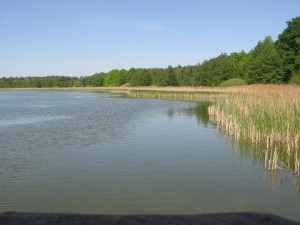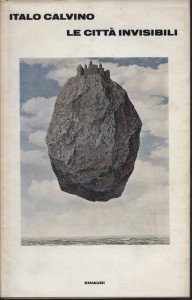Return to the French original text: Éloge des écotones
To Live on the Edges, to Praise the Ecotones
Yves Favier
Summary:
1. Edges, Fringes
2. Improvisation, Social Practice
3. Free Comments about “Gaya Sapor”
Edges, Fringes
Evidently the notion of “Edge” or “Fringe” is the one that tickles the most (the best?) especially when it is determined as an « autonomous zone between 2 territories », moving and indeterminate musical zones, yet identifiable.
They are not for me a “no man’s (women’s) land”, but rather a transition zones between two (or more) environments…
In ecology, these singular zones are called “ecotones”, zones that shelter both species and communities of the different environments that border them, but also particular communities that are specific to them. Here we touch on two concepts: Guattari’s “Ecosophy”, where everything holds together, and Deleuze’s “Hecceity = Event.”
These edges between meadow, lake and forest are home to prairie species that prefer darker and cooler environments, others more aquatic ones, and forest species that prefer light and warmth.
Isn’t this the case in improvisation?…
- Would the improviser be this particular “being on the alert”?
Hunter/gatherer always ready to collect (capture?) existing SOUNDS, but also “herder”, in order to let those “immanent” ones emerge? Not yet manifest but already “possible in in the making”?… - “The territory is only valid in relation to a movement by which one leaves it.”
In the case of the notion of Hocquard’s border associated with the classical political conception, the improviser would be a transmitter between 2 territories determined in advance to be academic by convention: a transmitter between THE contemporary (sacred art) music and THE spontaneous (social prosaic) music. …we’ll say that it’s a good start, but which will have no development other than in and through conventions…it will always be a line that separates, it’s an “abstraction” from which concrete bodies (including the public) are de facto excluded. - What (musical) LINE, could mark as limit, an “extremity” (also abstract) to a music so-called “free” only to be considered from the inside (supposedly from the inside of the improviser).
Effectively taking away any possibility of breaking out of these identity limits (“improvisation is this and no other thing”, “leave Improvisation to the improvisers”) comes from the fantasy of the creative origins and its isolated “geniuses”. … for me the “no man’s land” suggested by Hocquard can be found here!
…fluctuating moving data…leaving at no time the possibility of describing a stable/definitive situation…
temporary…valid only momentarily…on the nerve…
to touch the nerve is to touch the edge, the fringe, the margin…
improvisation as rapture…temporal kidnapping…
…where one is no longer quite yourself and finally oneself…
…testing time by gesture combined with form…and vice versa…
the irrational at the edge of well-reasoned frequency physics…
…well-tempered…nothing magical…just a fringe, an edge, reached by nerves…
ecotone…tension BETWEEN…
…between certainties…
…between existing and pre-existing…
immanent attractor…
…between silence and what is possible in the making…
this force that hits the nerve…
…that disturbs silence?…
…the edge, the fringe, the margin as a perpetually moving continuity…
The inclusion of each milieu in the other
Not directly connected to each other
Changing its ecological properties
Very common of milieux interpenetration
Terrier
Termite mound
A place where one changes one’s environment
For its own benefice and for that of other species
What narrative does the edge convey?…
Improvisation, Social Practice
Moving from a belief in certainty to working creatively with uncertainty.
Moving from frozen equilibria to proliferating disequilibria.
Moving from instilled objectivity to inter-subjective productions.
Moving from frozen equilibria to proliferating disequilibria.
Moving from ingrained objectivities to intersubjective productions?
Moving from deterministic predictions (hegemony) to an awareness of fundamental instabilities.
Moving from the unsurpassable to the possible/probable horizon.
Move from universal knowledge (centralization/hierarchicalization) to localized knowledge (rhizome/decentralized networks).
Moving from the supposedly objective structure to a broader movement of thought and dialogue between subjectivities…
…the edge of science/art being ecotone…
Gilles Deleuze and Félix Guattari:
From the central layer to the periphery, then from the new center to the new periphery, nomadic waves or deterritorialization flows pass through, falling back on the old center and rushing towards the new.
Connectivité Plus forts
Plus forts Le centre comme milieu
Le centre comme milieu
et vice versa
Free Comments about “Gaya Sapor”
August 2020
1/ ForewordLiving in the environment in the time allotted to us, engages us in 3 simultaneous ecologies: Contemporary globalized society/civilization is dragging us into a particularly powerful anxiety-provoking “maelstrom”, heightened by the media grinder. The conjunction of these anxiogenic currents (crisis: employment, financial, political, environmental, health, cultural, etc.) pushes us, by combined powers under the millstone of the injunction to adapt to the maladjusted, to resignation, surrender, individual abdication or collective struggles fueled by despair (even despairing)… In order to “move from a belief in Certainty, to recognition and creative work with uncertainty”, emerges the need to implement “antidotes” to this toxic mental construction, to “produce” an alternative… unconventional… not “conventioned”… subjectivity?
2/ To live “on the edges of…”, or “Praise the Ecotones”The edge between Arts and Sciences (erudite or incorporated) is an “ecotone”, a precarious shelter, a “skènè” (stage) that changes/turns the conventional order “between” the different actors, inhabitants (human and non-human), audiences… Nothing can remain fixed, frontal, everything becomes precarious and uncertain… everything is in perpetual movement, change, evolution, emancipation from one to/for/against the other… But always in diversity… biodiversity, in interdependent (autopoiesis) & interdependent moving ecosystems… The music(s) in “social ecotones” are major vectors of shared sensibilities, transmitted in and with total uncertainty as to how they will be perceived (if, in the best of cases, they are) nor by whom they will be perceived. All the rest of the subject and its implementation could be under the sharpened poetic gaze of Italo Calvino… in Le città invisibili, 1972:
I like the latter … it carries the flavor of knowledge(s) … in perpetual movement. To be continued… |
– Félix Guattari, The three ecologies, The Athlone Press, 2000, transl. Ian Pindar & Paul Sutton (first pub. in France, 1989). – Gregory Bateson, Steps to an Ecology of Mind, University of Chicago Press, 1972. – Bernard Stiegler, Automatic Society: The Future of Work, Wiley, 2017, transl. Daniel Ross (first pub. in France, 2015), see chap. 5. – Hans Jonas, The imperative of responsibility in search of an ethics for the technological age, University of Chicago Press, 1984, transl. Hans Jonas & David Herr (first pub. in Germany, 1979). – Barbara Stiegler, « Il faut s’adapter ». Sur un nouvel impératif politique, Paris, Gallimard, coll. NRF Essais, 2019. – Ilya Prigogine (The End of Certainty: Time, Chaos and the New Laws of Nature, Free Press, 1997, first pub. in France, 1996), cited by Deborah Bird Rose, Wild Dog Dreaming. Love and Extinction, 2011, Univ. of Virginia, and The ecological humanities in action: an invitation, Australian Humanities Review, 2004.
The ecotone is often also a corridor, which according to the seasons develop different functions for different species.
|


